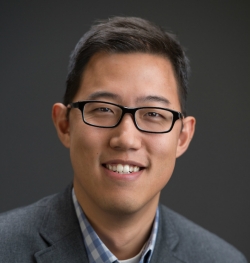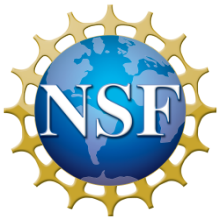CEET Member Edward Kim Awarded NSF CAREER Grant

Villanova, PA - Edward Kim, PhD, assistant professor of Computing Sciences and member of the Villanova Center of Excellence in Enterprise Technology, has been named a recipient of the National Science Foundation's (NSF) prestigious Faculty Early Career Development (CAREER) Award to advance research in artificial intelligence (AI). His research to be supported by the $494,966 five-year grant will focus on the development of a radically new AI framework that should mimic and model human intelligence and behavior.
NSF CAREER awards are conferred "in support of early-career faculty who have the potential to serve as academic role models in research and education and to lead advances in the mission of their department or organization," according to the NSF.
Through his research, Kim, an expert in computer vision, proposes to take the current paradigm in AI, a machine learning technique known as "deep learning," to a new level. While deep learning is good at matching specific patterns for specific tasks, research has shown that it cannot generalize to different tasks and has no real understanding of what it is doing, according to Kim.
The objective of Kim's research is to explore a new kind of AI framework that mimics how the human brain senses and understands the world. This new AI system will learn much like an infant learns, by simply observing the world and learning through observation. Eventually, Kim notes, the model learns the structure of the world and existing associations—and will even have the ability to accurately make predictions. It will utilize a new type of computer chip that communicates information in the same way that neurons in the brain communicate.
"Our research has the potential to transform how the field creates intelligence in machine learning. This biologically-inspired approach can learn robust representations of the world, without human intervention or supervision," Kim said. "Our model learns about the physics of the world, it learns how to associate concepts together and can even predict future events without explicitly being told to do so. Ultimately, we believe that our research could be a plausible building block to an artificial intelligence that has a better understanding of the world in which we live."

Collaborating in Kim's research will be a working group consisting of researchers from the University of Delaware, Los Alamos National Laboratory, the Naval Research Laboratory and Intel Corporation. Educational outreach sponsored as part of Kim’s research will include programs designed to attract non-STEM majors to computer science; research experiences for undergraduates with an emphasis on underrepresented recruitment; and advanced graduate level course curriculum development focused on assistive technology. In addition, students will have direct involvement with Kim's research either in his laboratory or in collaboration with government and industry members of his working group.
"While it is important for our students to research the technology, it is equally important to know how the technology affects society at large," Kim stated. "I have built strong connections with several government, academic, and industry partners, and am leveraging all of these networks to give our students a bigger perspective on our research efforts."
Note: This CEET Press Release was adapted from material in the Two Villanova University Professors Named Recipients of Prestigious National Science Foundation CAREER Awards press release.
